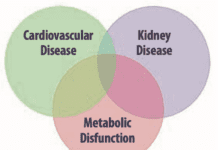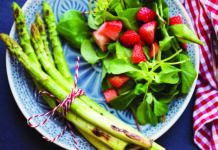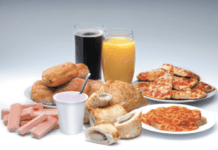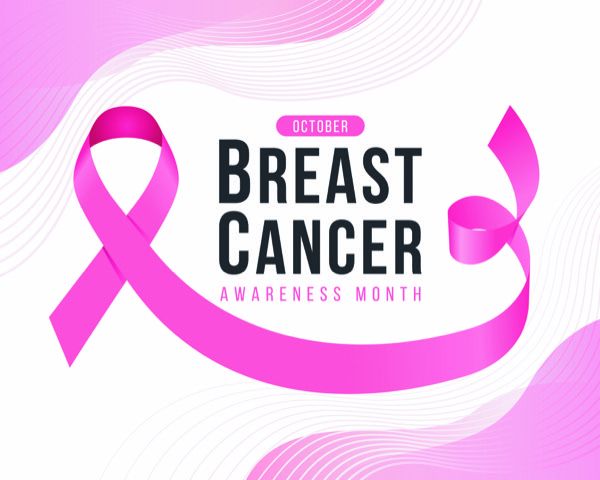In honor of Breast Cancer Awareness Month, we researched the latest information on diet and other lifestyle activities and breast cancer risk.
Breast Cancer 101. Breast cancer is the second most common cancer in women (after skin cancer). It is also the second leading cause of cancer death (after lung cancer). While the vast majority of cases occur in women, men can develop breast cancer as well.
There are different types of breast cancer (ductal or lobular, invasive or non-invasive). About two thirds of breast cancers have cells that grow in response to hormones. These are called estrogen-receptor positive or progesterone-receptor positive.
While there is a recognized genetic component to some types of breast cancer, there is no way to determine what causes each individual case. Lifestyle choices that have been ruled out as risk factors for breast cancer include use of antiperspirants and wearing underwire bras. Let’s take a closer look at lifestyle factors research shows are associated with higher or lower risk.
Dietary Factors. What you choose to eat and drink may have the potential to impact your breast cancer risk (as well as your overall health).
- Alcohol: Alcohol use increases risk for estrogen receptor-positive breast cancer. According to the American Cancer Society, women who have one alcoholic drink a day have a seven to 10 percent higher lifetime risk of developing breast cancer than women who don’t drink, and those who have two to three drinks a day have about a 20 percent higher risk.
- Overall Dietary Pattern: Dietary patterns that are higher in plant foods and lower in animal products and refined carbohydrates than the typical Western diet are associated with lower risk of multiple types of cancer. Such a dietary pattern includes a variety of unprocessed and minimally processed foods such as fruits, vegetables, legumes, whole grains, and nonfat or fat free dairy products and limits red and processed meats, sugar-sweetened beverages, refined grain products, and other highly processed foods.
- Veggies: Research suggests dietary patterns that include plenty of non-starchy vegetables and/or vegetables rich in carotenoids (like tomatoes, carrots, and other red, orange, and yellow options) are associated with lower risk of estrogen receptor-negative breast cancer.
- Fat-Free and Low-Fat Dairy: There is limited evidence that diets higher in dairy products are associated with lower risk. For general health, fat-free and low-fat dairy are preferred.
- Soy foods: Soy contains a compound that is chemically similar to human estrogen. At one time, it was theorized consuming soy could increase risk for estrogen-receptor positive breast cancer, but research has not supported this theory. “The research conducted in humans has been very consistent,” says Fang Fang Zhang, MD, PhD, a cancer epidemiologist and a professor at the Friedman School. “There is no evidence to suggest consuming soy increases a women’s risk of developing breast cancer. Additionally, although there are few studies that look at soy consumption after diagnosis, no evidence suggests consuming soy would do any harm for women with breast cancer. Women should feel safe consuming soy foods!”
Zhang cautions that studies have focused on whole or minimally processed soy foods, like mature soybeans, edamame, tofu, tempeh, and soymilk, and cannot be generalized to soy powders and other soy or isoflavone supplements or to foods with added soy protein isolates. “There is no evidence at this time that these would have the same protective effect,” she explains.
➧ Limit or Avoid Alcohol. Stick to no more than one drink a day for women and two for men. ➧ Make Healthy Dietary Choices. Choose a variety of fruits, vegetables, legumes, and whole grains, and limit red and processed meats, sugar-sweetened beverages, refined grain products, and other highly processed foods. ➧ Eat Your Veggies (and Fruits)! Eat a variety of fruits and non-starchy vegetables, including a variety of those that are red, orange, and yellow. ➧ Go for Dairy. Consume fat-free and low-fat dairy products like milk and yogurt. ➧ Don’t Skip Soy. Contrary to past advice, it is safe to eat soy foods like edamame, mature soybeans, tofu, and soymilk. ➧ Get Moving. Evidence is growing that regular physical activity lowers cancer risk. ➧ Try to Lose Weight. For postmenopausal women who have excess body fat, losing even four to five pounds and keeping it off may lower breast cancer risk.
Beyond Diet. Some additional lifestyle factors are important to mention in a discussion of breast cancer risk reduction. especially physical activity and weight.
- Physical activity: Being physically active on a regular basis is associated with lower breast cancer risk, especially in women post menopause. This may be due to the physical activity itself or an overall healthy lifestyle. It is not known if there is an ideal level of activity. The general physical activity recommendation is 150 to 300 minutes of moderate intensity or 75 to 150 minutes of vigorous intensity activity each week (or a combination of these), but studies suggest every little bit counts.
- Weight maintenance: Being overweight or obese after menopause is associated with higher breast cancer risk, especially estrogen- or progesterone-receptor positive breast cancer, and particularly if that weight was gained in adulthood.
Losing even small amounts of weight can help reduce risk. In an analysis that pooled data on nearly 181,000 women aged 50 and over for approximately 10 years, women who lost as little as 2 kilograms (4.4 pounds) of excess body fat and kept it off had a lower risk of being diagnosed with breast cancer during the study period than those whose weight remained relatively stable. Losing nine or more kilograms (20 pounds) and gaining some (but not all) of it back was also associated with a lower risk of breast cancer.
There is no guaranteed means of preventing breast cancer. However, lifestyle choices that benefit your overall health—including consuming a healthy dietary pattern and being physically active—may lower your breast cancer risk.
























